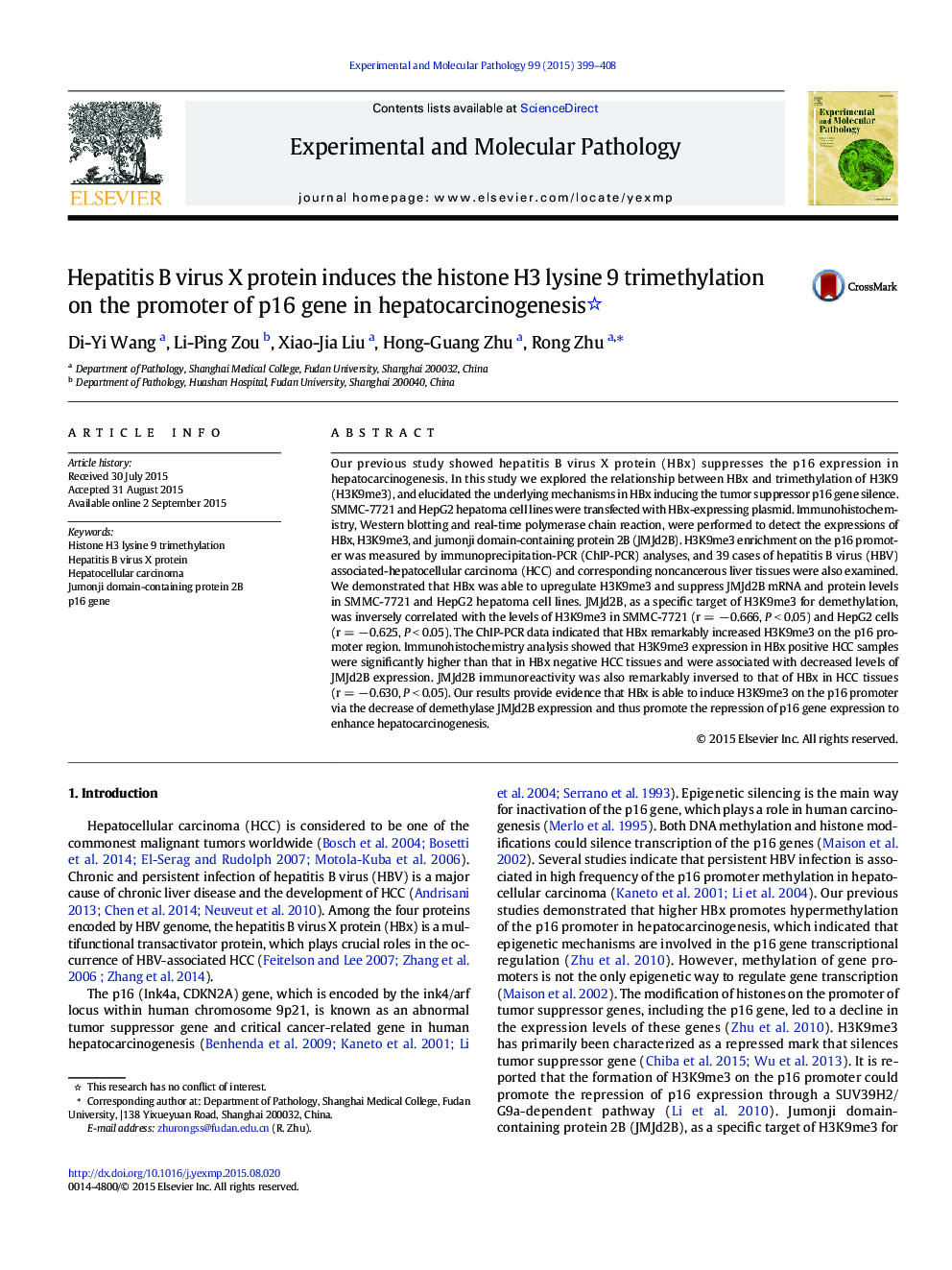| Article ID | Journal | Published Year | Pages | File Type |
|---|---|---|---|---|
| 2774873 | Experimental and Molecular Pathology | 2015 | 10 Pages |
Our previous study showed hepatitis B virus X protein (HBx) suppresses the p16 expression in hepatocarcinogenesis. In this study we explored the relationship between HBx and trimethylation of H3K9 (H3K9me3), and elucidated the underlying mechanisms in HBx inducing the tumor suppressor p16 gene silence. SMMC-7721 and HepG2 hepatoma cell lines were transfected with HBx-expressing plasmid. Immunohistochemistry, Western blotting and real-time polymerase chain reaction, were performed to detect the expressions of HBx, H3K9me3, and jumonji domain-containing protein 2B (JMJd2B). H3K9me3 enrichment on the p16 promoter was measured by immunoprecipitation-PCR (ChIP-PCR) analyses, and 39 cases of hepatitis B virus (HBV) associated-hepatocellular carcinoma (HCC) and corresponding noncancerous liver tissues were also examined. We demonstrated that HBx was able to upregulate H3K9me3 and suppress JMJd2B mRNA and protein levels in SMMC-7721 and HepG2 hepatoma cell lines. JMJd2B, as a specific target of H3K9me3 for demethylation, was inversely correlated with the levels of H3K9me3 in SMMC-7721 (r = − 0.666, P < 0.05) and HepG2 cells (r = − 0.625, P < 0.05). The ChIP-PCR data indicated that HBx remarkably increased H3K9me3 on the p16 promoter region. Immunohistochemistry analysis showed that H3K9me3 expression in HBx positive HCC samples were significantly higher than that in HBx negative HCC tissues and were associated with decreased levels of JMJd2B expression. JMJd2B immunoreactivity was also remarkably inversed to that of HBx in HCC tissues (r = − 0.630, P < 0.05). Our results provide evidence that HBx is able to induce H3K9me3 on the p16 promoter via the decrease of demethylase JMJd2B expression and thus promote the repression of p16 gene expression to enhance hepatocarcinogenesis.
